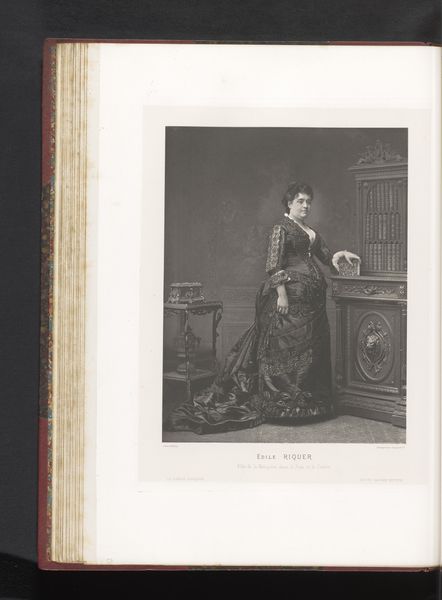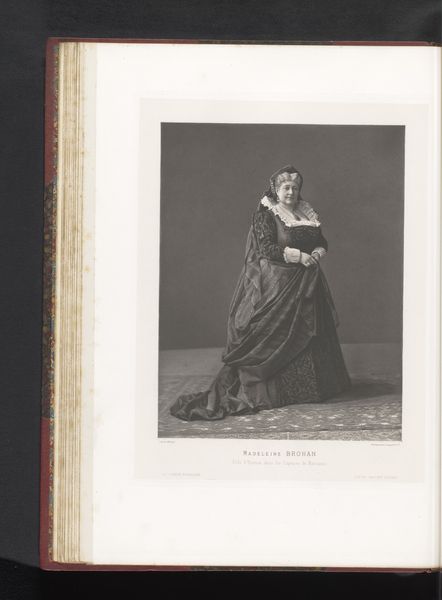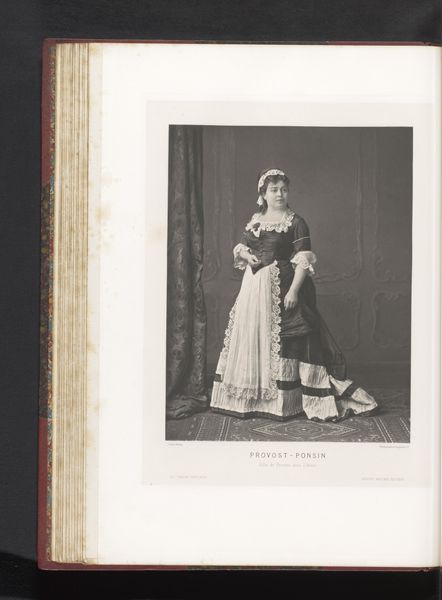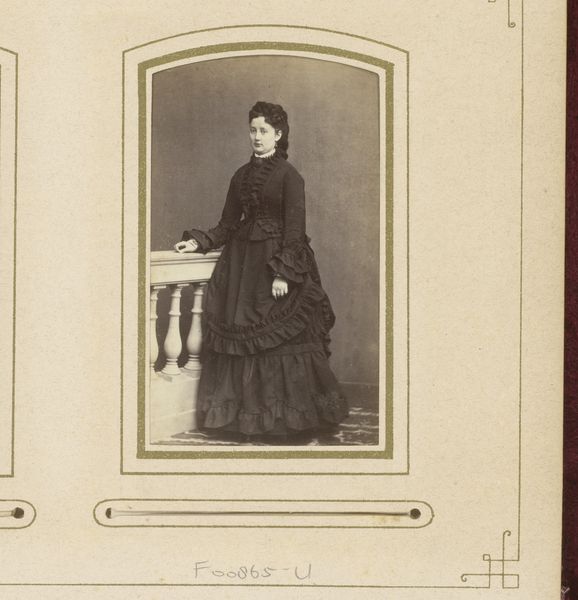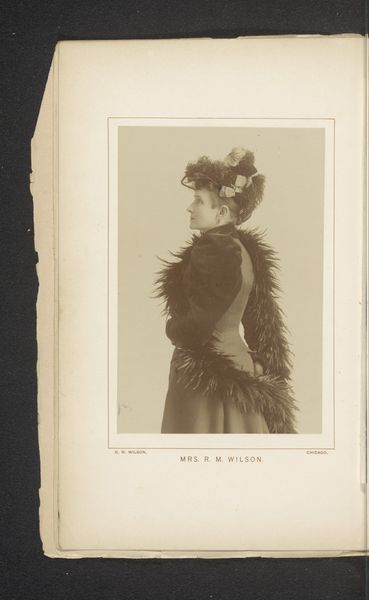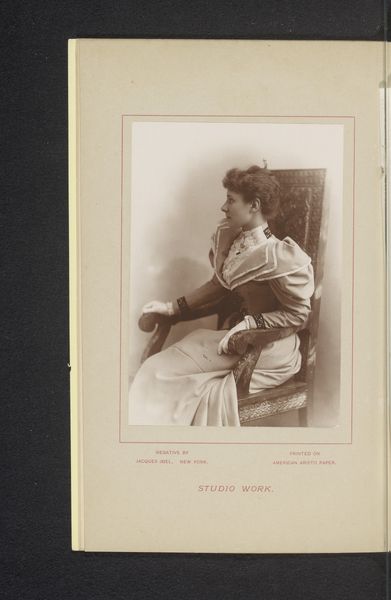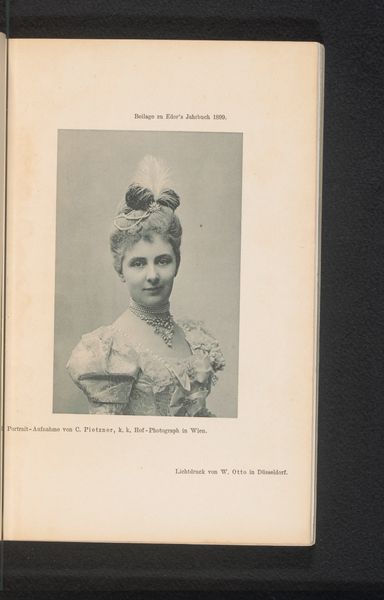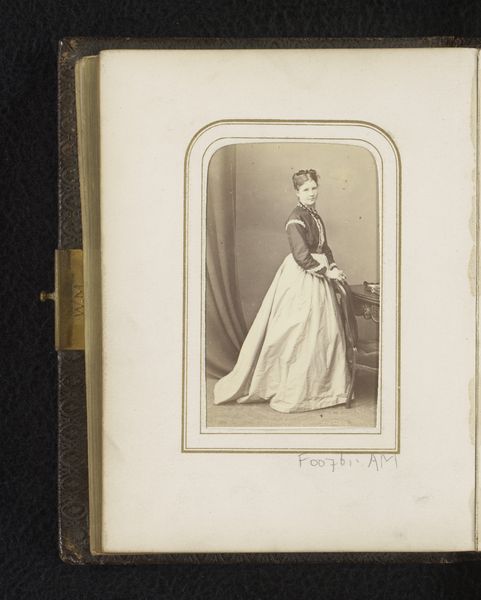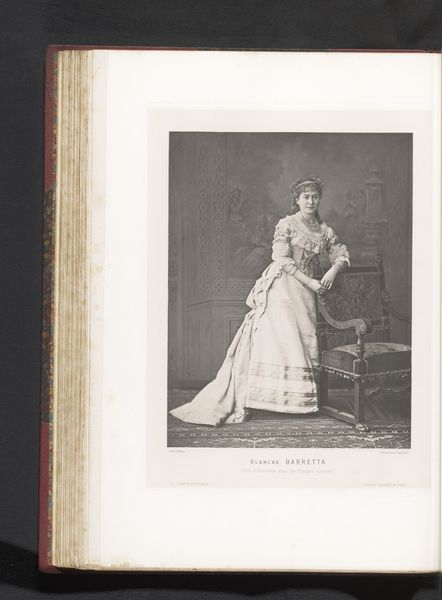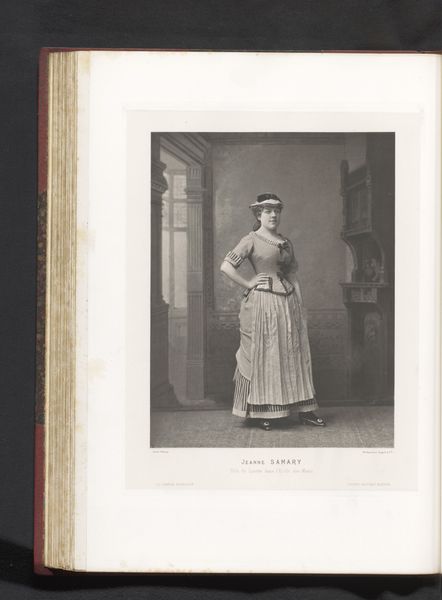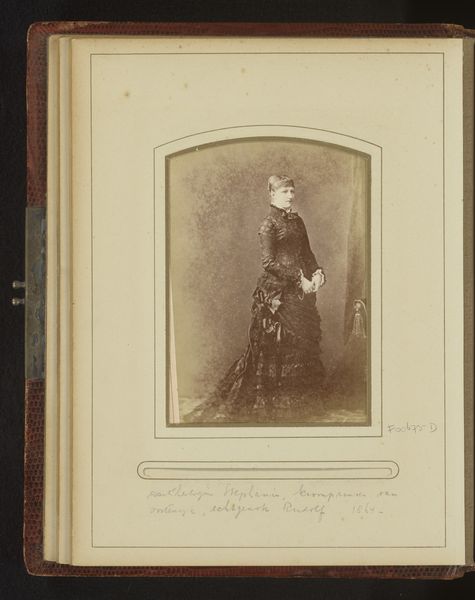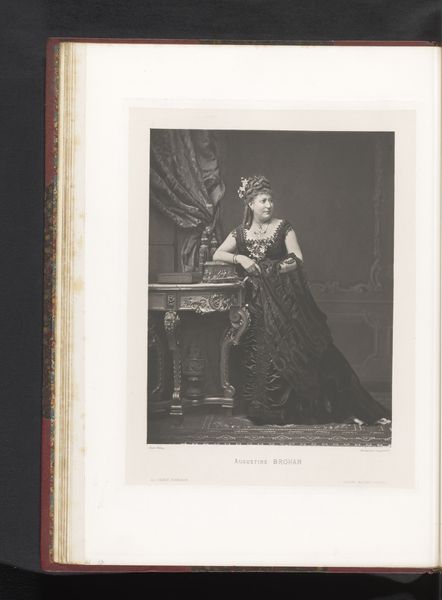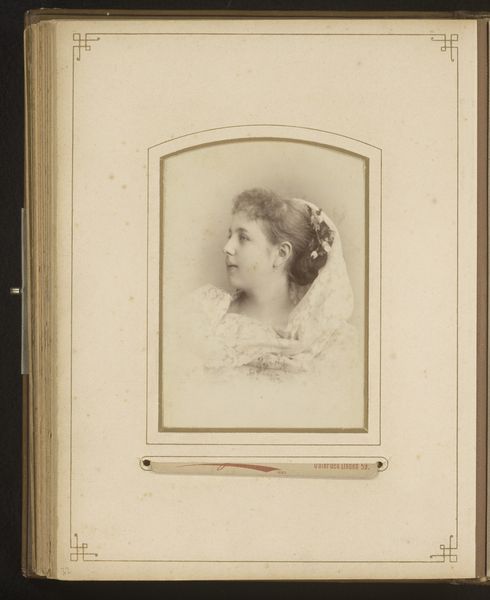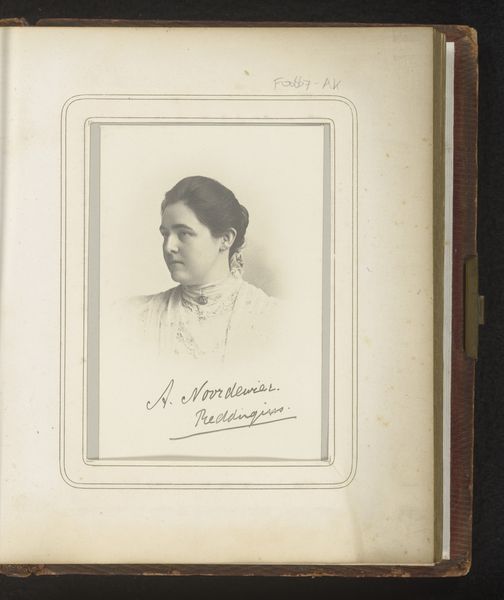
#
aged paper
#
toned paper
#
homemade paper
#
sketch book
#
flower
#
personal sketchbook
#
journal
#
coloured pencil
#
golden font
#
watercolor
#
historical font
Dimensions: height 238 mm, width 167 mm
Copyright: Rijks Museum: Open Domain
This is an anonymous reproduction of Émile Lévy’s painting, “La Bouquetière,” the flower seller. It was created as a photographic print in an album. The original painting shows a young woman, likely working class, posed as an object of visual pleasure for a bourgeois male audience. The reproduction of “La Bouquetière” in this photographic album adds another layer to its cultural meaning. Photography democratized image production but, as a new medium, it also sought legitimacy by reproducing established artworks. It became a tool for disseminating and preserving art, but also for shaping taste and cultural values. This image is more than just a record; it’s a statement about art's role in society and how institutions influence our perception. To understand this fully, we’d need to explore the history of photography, art academies, and the art market in 19th-century France. These research avenues help us see how meaning is tied to the social and institutional context in which art is made and consumed.
Comments
No comments
Be the first to comment and join the conversation on the ultimate creative platform.
